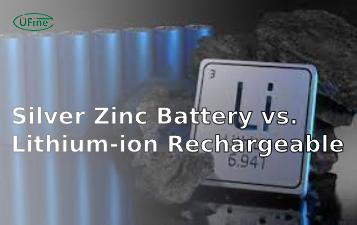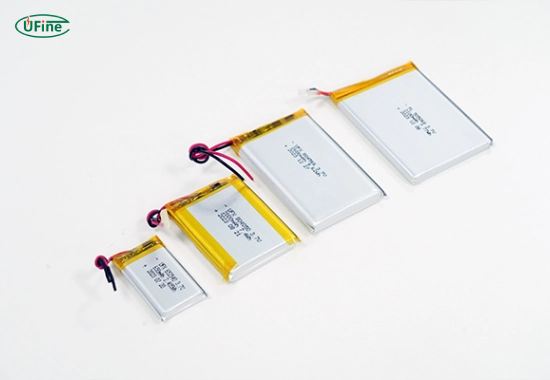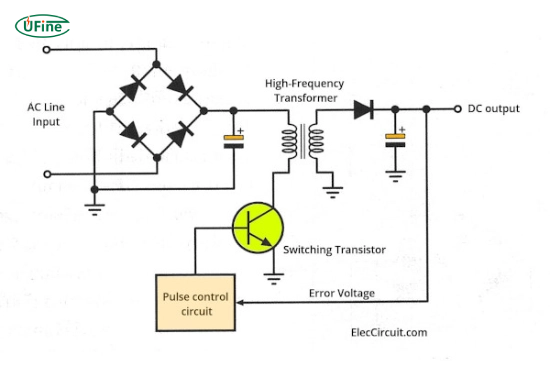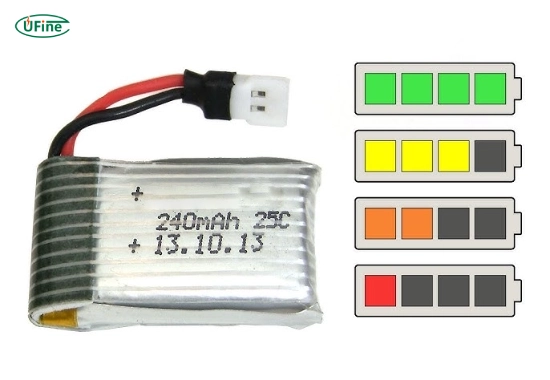
- Part 1. What is a lithium battery?
- Part 2. How does a power supply work?
- Part 3. Can you charge a lithium battery with a power supply?
- Part 4. What are the steps to charge a lithium battery with a power supply?
- Part 5. What precautions should you take when charging lithium batteries?
- Part 6. What are the benefits of using a power supply to charge lithium batteries?
- Part 7. What are the risks of charging lithium batteries with a power supply?
- Part 8. How does a lithium battery charger differ from a power supply?
- Part 9. Can you charge different types of lithium batteries with a power supply?
- Part 10. FAQs
Lithium batteries have become increasingly popular due to their lightweight design, long lifespan, and efficiency. However, a common question arises: Can you charge a lithium battery with a power supply? The short answer is yes, but it requires specific settings, careful monitoring, and an understanding of lithium batteries work. In this detailed guide, we’ll explore everything you need to know about charging lithium batteries with a power supply, the necessary precautions, and tips for optimal performance.
Part 1. What is a lithium battery?
A lithium battery is rechargeable and uses lithium ions as its primary component. Lithium batteries are known for their high energy density, lightweight design, and long cycle life, unlike traditional lead-acid or nickel-cadmium batteries. People commonly use them in electronic devices, electric vehicles, renewable energy storage systems, and more.
The unique chemistry of lithium batteries allows them to store more energy in a smaller space. However, this makes them sensitive to improper charging, which can degrade their performance or cause safety hazards.
Part 2. How does a power supply work?
A power supply is an electrical device that converts and regulates the electrical current to provide the appropriate voltage and current for specific applications. It’s typically used to power electronic devices but can charge batteries under certain conditions.
Power supplies are available in two primary types:
- Linear power supplies provide a stable output but are less efficient.
- Switching power supplies are more efficient and versatile but may produce electrical noise.
When you use a power supply to charge a lithium battery, ensure you correctly set the voltage and current to match the battery’s specifications.
Part 3. Can you charge a lithium battery with a power supply?
You can charge a lithium battery with a power supply, but it requires careful attention to detail. Lithium batteries have specific charging requirements, including a constant current (CC) phase followed by a constant voltage (CV) phase. A power supply that doesn’t meet these requirements can damage the battery or create safety risks.
To safely charge a lithium battery with a power supply, you must:
- Set the correct voltage: The power supply must match the lithium battery’s nominal voltage (e.g., 3.7V, 12V, etc.).
- Limit the current: The current should not exceed the battery’s recommended charge rate.
- Monitor the charging process: Overcharging or overheating can damage the battery, so monitoring is essential.
Part 4. What are the steps to charge a lithium battery with a power supply?
Charging a lithium battery with a power supply involves the following steps:
- Determine the battery’s specifications: Check the battery label or datasheet for its nominal voltage, maximum charge voltage, and recommended charge current.
- Set the power supply parameters: Configure the power supply to provide the appropriate voltage and limit the current.
- Connect the battery: Use proper connectors and ensure a secure connection between the battery terminals and the power supply.
- Monitor the charging process: Use a multimeter or built-in power supply features to check voltage, current, and temperature.
- Stop charging when complete: Disconnect the battery once it reaches its full charge voltage (e.g., 4.2V per cell).
Part 5. What precautions should you take when charging lithium batteries?
Lithium batteries are sensitive to improper handling, so following these precautions is essential:
- Avoid overcharging: Never exceed the maximum charge voltage specified by the manufacturer.
- Use a power supply with adjustable settings: A fixed-voltage power supply may not suit the battery’s requirements.
- Monitor temperature: Overheating can damage the battery or cause thermal runaway.
- Charge in a safe environment: Avoid charging near flammable materials, and ensure proper ventilation.
- Don’t leave it unattended: Always supervise the charging process.
How to Charge a Lithium-ion Battery?
Part 6. What are the benefits of using a power supply to charge lithium batteries?
Using a power supply for charging lithium batteries has some advantages:
- Precision: Adjustable power supplies allow precise control over voltage and current, ensuring you charge the battery according to its specifications.
- Versatility: With the correct settings, a single power supply can charge different types of lithium batteries.
- Cost-effectiveness: If you own a power supply, purchasing a dedicated lithium battery charger eliminates purchasing.
Part 7. What are the risks of charging lithium batteries with a power supply?
While it is possible to charge lithium batteries with a power supply, there are some risks to consider:
- Overcharging: Exceeding the maximum voltage can damage the battery or cause safety hazards.
- Incorrect settings: Using the wrong voltage or current can permanently damage the battery.
- Lack of protection features: Unlike dedicated chargers, power supplies may lack safety features like overcharge protection, short-circuit protection, and temperature monitoring.
Part 8. How does a lithium battery charger differ from a power supply?
A lithium battery charger is specifically designed for charging lithium batteries and includes built-in safety features like:
- Automatic voltage and current adjustment: You charge the battery safely and efficiently.
- Overcharge protection: Prevents voltage from exceeding safe levels.
- Temperature monitoring: Protects against overheating.
In contrast, a power supply requires manual configuration and monitoring, making charging lithium batteries less convenient and potentially riskier.
Part 9. Can you charge different types of lithium batteries with a power supply?
With a power supply, you can charge various lithium battery types (e.g., lithium-ion, lithium-polymer, lithium iron phosphate). Still, each type has unique voltage and current requirements. Always check the manufacturer’s specifications before charging.
Part 10. FAQs
-
Can I use any power supply to charge a lithium battery?
No, not all power supplies are suitable. You need a power supply with adjustable voltage and current settings to match the battery’s specifications. -
What happens if I charge a lithium battery with too much voltage?
Overcharging a lithium battery can cause overheating, swelling, or even thermal runaway, which may lead to fire or explosion. -
Can I leave a lithium battery connected to a power supply overnight?
Leaving a lithium battery charging unattended is not recommended, as overcharging or overheating can occur without proper monitoring. -
How do I know when a lithium battery is fully charged?
A lithium battery is fully charged when the voltage reaches its maximum charge level (e.g., 4.2V per cell), and the current drops to a minimal value during the constant voltage phase. -
Is it better to use a dedicated charger instead of a power supply?
A dedicated charger is safer and more convenient because it includes built-in safety features and is specifically designed for lithium batteries.
Related Tags:
More Articles

What is the Difference Between Silver Zinc Battery vs. Lithium-ion Rechargeable?
Compare silver zinc and lithium-ion rechargeable batteries: energy density, cycle life, safety, cost, and uses in drones, medical devices, EVs, and electronics.
What are Watts and Watt Hours in Battery?
Understand watt vs watt-hour in batteries: key differences, how to calculate capacity, and why they matter. Includes free comparison table.
Best 10 Blood Pressure Monitor Battery Review: Finding the Most Reliable
Are you looking for a reliable Blood Pressure Monitor battery? Here is a complete guide with the top 10 best blood pressure monitor batteries.
Bluetooth Headphone Battery Guide: All You Need to Know
Maximize headphone battery life with expert tips! Learn how to charge, check, troubleshoot, and choose the best bluetooth headphone battery in 2025.
LiFePO4 Battery VS. Lithium-ion Polymer Battery: Which One Is Best?
Comprehensive comparison of LiFePO4 vs Lithium Ion Polymer batteries: energy density, safety, lifespan, cost. Find out which battery suits your needs in 2025.





